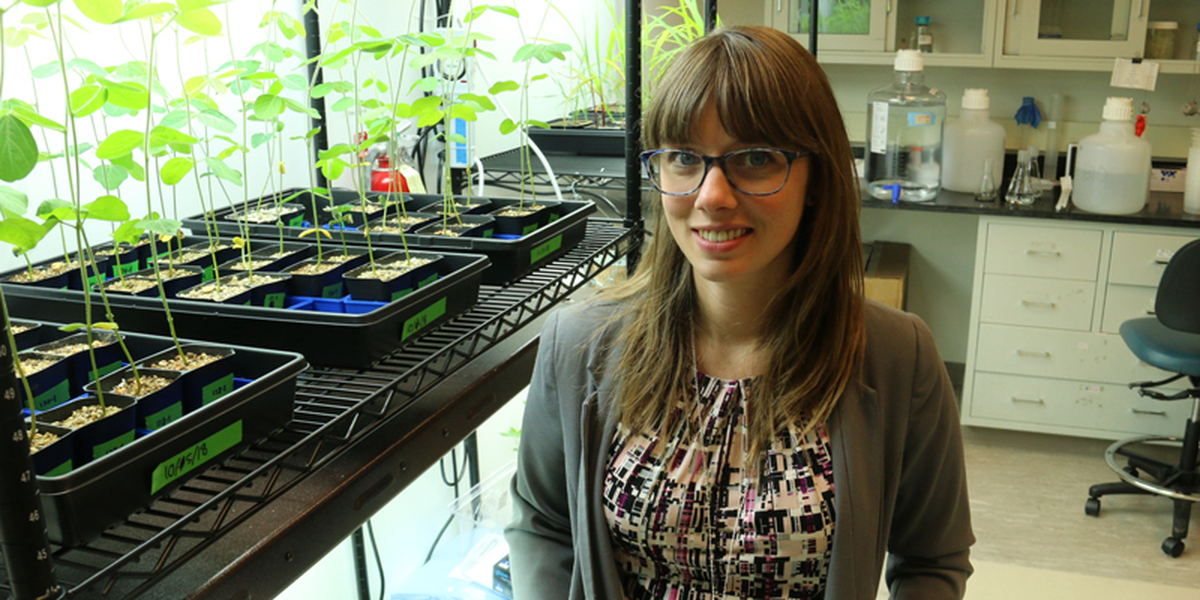
Nitrogen is a required nutrient for production agriculture to produce abundant crops. That necessary productivity boost comes with some major downsides. Nitrates from farm-field runoff contribute to water pollution and create “dead zones” that afflict downstream aquatic systems. Then there’s the release of nitrous oxide, a potent greenhouse gas. Sarah Bloch (Ph.D. Biochemistry, Molecular Biology and Biophysics, ’14) is on a mission to minimize the negative effects of chemical nitrogen fertilizers and improving farmer outcomes by engineering microbes to feed nitrogen to the plant using a more efficient and more environmental way.
After completing her graduate studies, Bloch and her partner made the move to the Bay Area, a major hub along with Boston for biotech firms. She landed at Pivot Bio, joining a five-person team that five years later has grown to a staff of over 70. Over that time her role has evolved, too. Bloch was recently promoted to Associate Director, Research Strategy. “Pivot Bio is developing biological nitrogen fertilizers that are going to be better for the planet,” says Bloch. “Our microbes provide nitrogen directly to the crop, which reduces the use and ultimately the consequences of synthetic nitrogen fertilizer.”
Your work involves “optimizing” bacteria to fix nitrogen directly and ultimately replace synthetic nitrogen. Can you explain how this might work?
It all starts by finding a microbe present in the soil. We have soil samples from locations all over the United States. In each of these soil samples, there are billions of bacteria. That’s really our starting point. We’re mostly interested in the microbes that associate with the roots of crops. Of those microbes, certain bacteria can fix nitrogen. Legumes and rhizobia are symbiotic in this way, but no such tight symbiosis exists for corn and other cereal crops, so we’re looking to the root microbiome of these crops to find microbes already living there that have the ability to fix nitrogen, and we’re just tweaking that process.
How did your graduate studies prepare you for this work?
I worked on engineering bacteria to produce pharmaceutical compounds as a graduate student in Claudia Schmidt-Dannert’s lab. Pivot Bio was looking for someone with experience in synthetic biology who knew about microbial metabolism, so it was a pretty ideal match. I didn’t know it then, but my graduate work prepared me to do this cutting-edge, outside-the-box work using microbes in the environment.
In my graduate program, I got the chance to meet folks in other colleges and departments, and I think the chance to work in a multidisciplinary way with other students helped me acclimate quickly to work in a small startup with a group of people with very different areas of expertise.
What advice do you have for students and recent alums interested in working in your field?
Go to conferences as much as you can and network! Try to meet people in your industry because those connections will be really important for getting a job doing what you’re passionate about. That’s how I connected with the founders of Pivot Bio. If you have the ability to take a risk on a startup and the opportunity presents itself I would recommend it, especially if you’d like to be involved in a lot of different aspects of a company.